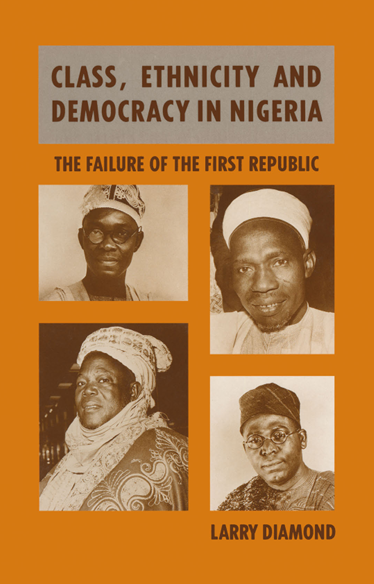
Class, Ethnicity and Democracy in Nigeria: The Failure of the First Republic
Author: Larry Diamond Category: Geo-Politics, History, Nigerian History, Politics, Religion More DetailsAs the most populous nation in Africa, with perhaps a fifth of the continent’s entire population, Nigeria is inevitably a focus of attention. Its rich and volatile mix of cultures, abundant natural wealth and powerful democratic impulses have also made it a focus of analysis about politics in Africa. Since its independence in 1960, Nigeria has been widely regarded as having one of the best prospects for democratic government in Africa. Despite the breakdown of the first democratic constitution, a traumatic civil war, five military coups and the failure of the recent Second Republic, Nigeria retains considerable democratic promise. At both the elite and mass levels, democratic values have considerable resonance. Efforts to impose authoritarian rule have been frustrated by the intensely pluralistic character of the society and the deep popular attachment to personal freedom and political participation. Repeatedly, these pressures have thrust the quest for democracy to the centre of the political agenda, but they have not been sufficient to sustain democratic government. Hence, Nigeria has been trapped in a painful dilemma. For the past quarter-century, no form of authority has been stable.
